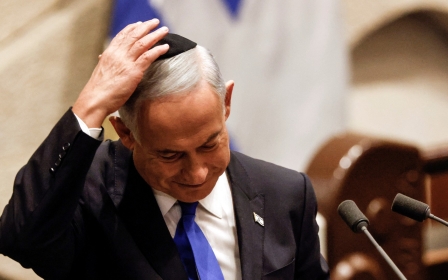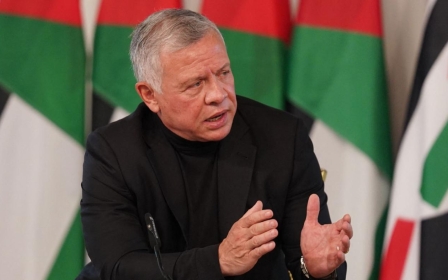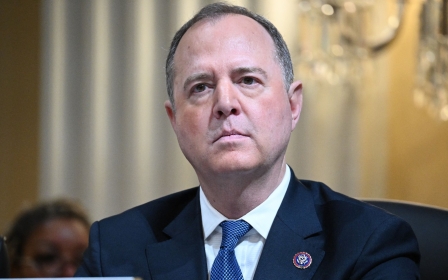Former Israeli diplomats warn new government will damage international standing

More than 100 former Israeli diplomats, including ambassadors, have signed a letter to Prime Minister Benjamin Netanyahu warning that the new far-right government will damage Israel's global standing and could lead to an international probe into the Israeli occupation of Palestinian territories.
The letter comes as Netanyahu's government was officially sworn in on Thursday, ushering in a new far-right cabinet that has vowed to put the expansion of Israeli settlements in the West Bank- deemed illegal under international law - at the top of its priorities.
In the letter, the diplomats expressed "profound concern at the serious damage to Israel's foreign relations, its international standing and its core interests abroad emanating from what will apparently be the policy of the incoming government".
"This concern is compounded by public statements made by potential senior office-holders in the government and the Knesset, by reports of expected changes in Israeli policy in Judea-Samaria/the West Bank, by some possible extreme and discriminatory laws which are oppressive to minorities."
New MEE newsletter: Jerusalem Dispatch
Sign up to get the latest insights and analysis on Israel-Palestine, alongside Turkey Unpacked and other MEE newsletters
The signatories said the potential policies pursued by the new government, including the expansion of settlements, will cause "serious damage" to "the intricate web of relations between Israel and Jewish communities throughout the world and on Israel’s international image".
Parts of the Jewish American community have already been outspoken in their opposition to the new Israeli government, with hundreds of rabbis in major metropolitan cities signing a letter vowing to block members of the Religious Zionism political bloc, which is a part of Netanyahu's ruling coalition.
And even before this, perceptions of Israel in Jewish communities in the US have been becoming more critical.
After Israel's bombing of Gaza last May, 25 percent of American Jewish voters said Israel was an apartheid state, in a poll conducted by the Jewish Electorate Institute.
According to the survey, 22 percent also agreed that Israel is committing genocide against Palestinians.
And another poll from earlier this year showed that fewer than one percent of US voters from the Democratic Party viewed Israel as one of Washington's top two allies in the world. The poll challenged the widely held view in Washington that the US-Israel relationship was ironclad and bipartisan.
Probe into Israeli occupation
The new ruling coalition in Israel includes members of Religious Zionism, which won 14 seats in the November election, running on a joint slate with the Otzma Yehudit (“Jewish Power”), and Noam, which fights for conservative "family values". The three factions split apart after the election and held separate coalition negotiations.
Bezalel Smotrich, a self-declared homophobe and settler activist, was sworn in as finance minister and also holds a place within Israel's defence ministry, with oversight of Israeli civilian policy inside the occupied West Bank.
Meanwhile, Itamar Ben Gvir, who was previously convicted in Israel of incitement to racism and supporting a terrorist organisation, was sworn in as national security minister, with unprecedented authority including oversight of police and the force that controls security at the sensitive al-Aqsa Mosque.
The letter added that a UN resolution to have the International Court of Justice (ICJ) weigh in on the Israeli occupation "will be heavily influenced" by the new government's policies and actions.
Last month, the UN's decolonisation committee adopted a draft Palestinian resolution requesting an advisory opinion from the ICJ on Israel's occupation of Palestinian lands since 1967.
The resolution asks the ICJ to "urgently" weigh in on Israel's "prolonged occupation, settlement and annexation of the Palestinian territory", which it said violated the Palestinians' right to self-determination.
The resolution referred to Palestinian lands occupied by Israel since the 1967 war: the West Bank, Gaza and East Jerusalem. However, the measure still needs approval from the UN General Assembly.
Middle East Eye delivers independent and unrivalled coverage and analysis of the Middle East, North Africa and beyond. To learn more about republishing this content and the associated fees, please fill out this form. More about MEE can be found here.





